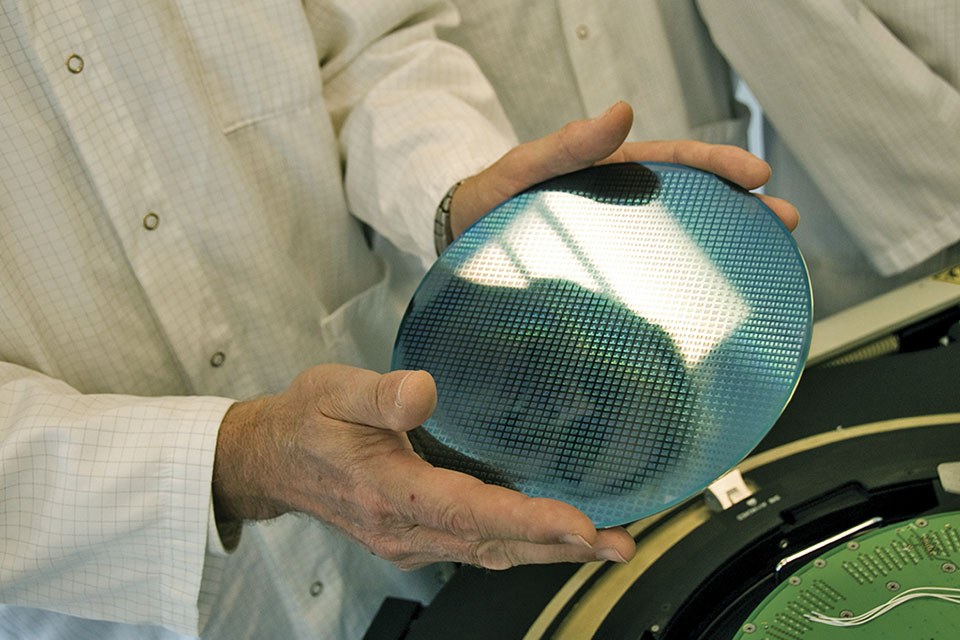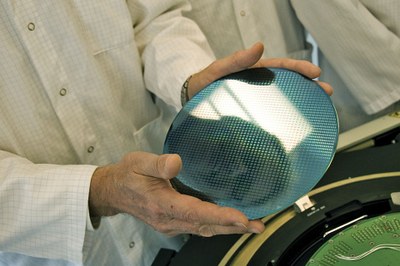Exclusive Deal Leads to World’s Smallest Sensor for LED Lighting & IoT
Gooee, the original “Full-Stack”, smart lighting ecosystem provider, has created the world’s smallest sensor for LED lighting and the Internet of Things (IoT) that now includes the latest Artificial Eye technology following an exclusive agreement with DELTA Microelectronics, a European leader in fabless ASIC design, sensor systems, lighting and optics.
The agreement, announced at the Hong Kong Lighting Fair, in effect creates a new “standard” in sensing, data and control for the LED lighting industry, and sees Gooee becoming the sole provider of this new, innovative Opto-ASIC technology to luminaire manufacturers. It also follows Gooee’s announcement of the exclusive partnership with EVRYTHNG’s IoT cloud platform, enabling Gooee to operate tens of millions of intelligent light endpoints in a global network.
Boasting multiple environmental, human and LED performance sensing capabilities, the advanced ASIC will be able to detect motion, direction, ambient light, LED colour temperature (CCT) variance, LED lux variance and ASIC operating temperature - all packaged in a 5 x 5mm chip.
A step closer to connecting LED lighting manufacturers to the IoT with its unique “Full-Stack” operating platform, Gooee has partnered with DELTA to focus on co-engineering and further developing more advanced sensing capabilities: “At present we are only scratching the surface in terms of what this chip can do,” said Gooee CTO Simon Coombes. “We are working on some really incredible functionality that will give Gooee and its customers a significant competitive advantage in sensing for the IoT.”
Gert Jørgensen, DELTA’s VP of Sales & Marketing is delighted to be partnering with Gooee on such an exciting venture: “We have invested significant time and money in R&D into our Artificial Eye technology, and have found a perfect application in the lighting and IoT world,” he added.
Founded in March 2014 by successful entrepreneur Andrew Johnson, Gooee has been in development for two years. DELTA has a track record of more than 70 years, and can boast a 35-year history in module manufacturing with companies like Nordic Semiconductor and IBM. “DELTA has a successful history of developing technology-driven products, and specialises in the core competencies that we need to make our ASIC work, so we are really excited about this project,” Coombes continued. “We are the only global company with exclusive access to this technology in the lighting sector.”
Gooee is also co-developing a new Bluetooth meshing protocol with a major Wireless IC provider. This technology, along with the other on-premise components of Gooee's ecosystem, will allow light fixtures to communicate two-way, enabling control, sensing, human engagement and asset tracking - all fully integrated into its enterprise cloud platform.
“Working alongside other leading providers and integrating the best technology into our platform guarantees LED lighting manufacturers the most cost effective, efficient, bespoke, ‘Full-Stack’ IoT solution,” he concluded.
About DELTA Microelectronics:
With more than 35 years of experience, DELTA Microelectronics is a European leader in ASIC services for the semiconductor industry. DELTA's comprehensive services include module manufacturing, ASIC design, layout, test development, wafer supply, production testing, package development and assembly, components supply, logistics and supply chain management. DELTA’s development and production facilities are based in Denmark and the UK, with service partners in Europe and Asia. Our focus area is IOT Artificial Eye technology, RFID controllers, sensor interfaces and payment systems.
About Gooee:
GOOEE is the creator of the world’s first ‘Full-Stack’ operating platform to connect lighting manufacturers to the IoT. Focused on design, engineering and supply of hardware, software and data management components across the LED lighting value chain, Gooee provides sensing, control and communication components that integrate with an enterprise scale cloud platform.


